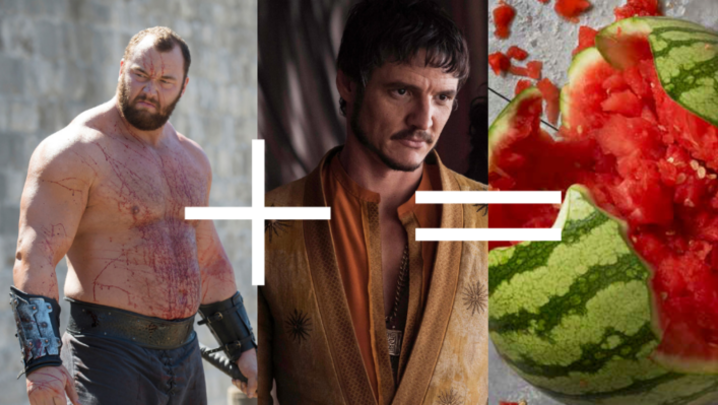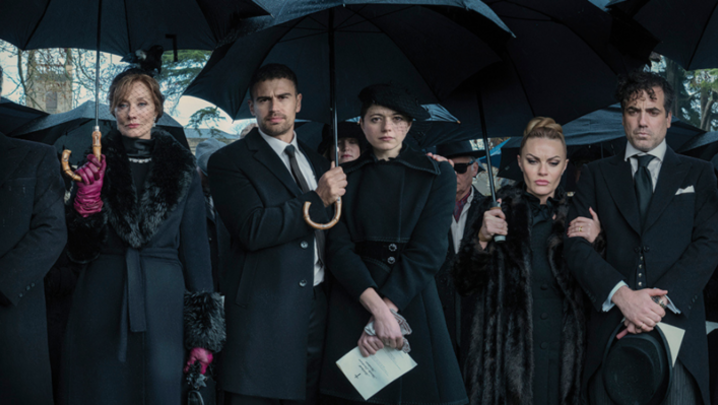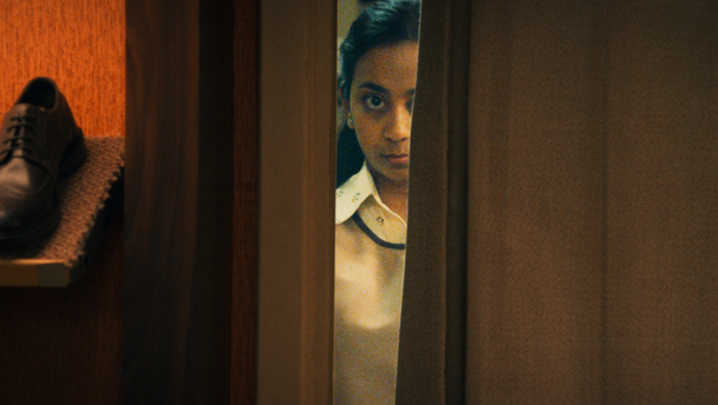From Game of Thrones to True Detective and Girls, HBO is riding high. Kate Bulkley talks to Michael Lombardo, the man who helped the US cable station rekindle its mojo
HBO’s President of Programming, Michael Lombardo, might have a reputation for being a touch obsessive, but, when it comes to his list of hit shows, it seems that such qualities work just fine.
HBO has received 126 Emmy nominations this year, 24 for Game of Thrones alone. Lombardo is the man behind GoT and other bull’s eyes – from edgy dramas, such as True Detective, with Matthew McConaughey, to push-the-envelope comedies, including Lena Dunham’s Girls, to The Jinx, the miniseries about alleged murderer Robert Durst, which HBO won the rights to after a nine-way bidding war.
In conversation, the New York native is disarmingly charming. He is one of those rare people who understand both the financial and creative aspects of television.
Lombardo reads scripts from beginning to end and has built a reputation for cultivating a deep workingrelationship with talent, especially writers.
He believes that it is HBO’s willingness to roll up the proverbial shirt sleeves that gives it an edge.
“I remain very fluent in the business side of content creation,” says Lombardo, on the phone from his Los Angeles office. “I understand the economics of making a show intimately. But a number of years ago, when I started using that muscle that you require when you to talk to writers, I found myself enjoying it enormously.
“I felt a little bit like a kid in the candy store. I found myself leaning into it, as Sheryl Sandberg would say.”
Lombardo is referring to the book Lean In by the Facebook Chief Operating Officer about how women are stereotyped in the workplace.
Stereotyping is something that Lombardo has strong views on. He and his husband, Sonny, are the parents of two children, and Lombardo serves on the board of GLSEN (Gay, Lesbian and Straight Education Network).
We find clear voices and more voice-driven shows from our UK artists.... They handcraft their scripts... some might say small but very beautiful
Lombardo has worked for HBO for more than 30 years. He joined HBO’s legal department in New York in 1983 and, three years later, relocated to Los Angeles to run business affairs. There, he rose through the ranks to become Executive Vice-President, Business Affairs, Production and Programming Operations in 2003.
It was in 2007 that Lombardo was given the chance to begin flexing his creative muscles. It was an inauspicious moment. The spectacular run of The Sopranos had ended and there was not much that was exciting on the channel. The buzz in the business was that the famous HBO acronym had come to mean “HB-Over”.
In the midst of this creative malaise, Lombardo was given creative control of programming, overseeing the flagship channel, HBO, sister channel Cinemax and HBO Films. His remit was, and is, a big one, covering entertainment, documentaries, sport and family programming.
It’s easy to forget what a spectacular rejuvenation has been wrought by Lombardo and HBO’s Chairman and CEO, Richard Plepler, who was promoted to his present job in 2013. Arguably, HBO’s reputation has never been higher than it is today.
“The secret sauce of HBO is about talent – and not just big, known talent,” Lombardo says. “We offer a very honest, value-added relationship and I think that stands for something.
“And we support our programming, we stick with it and we let it grow.”
Unlike free-to-air broadcasters, HBO doesn’t have to generate big ratings with every show. As a premium subscription service, HBO can afford to take risks and support programmes that might appeal only to some of its subscribers, some of the time.
“The good part of this is that it allows you to finely explore the [show’s] creative ambitions with someone without worrying about the demographics of the show or whether there are unlikeable characters in the scripts,” says Lombardo.
HBO famously does not “do” focus groups for its shows. Instead, it relies on the judgement of its programming executives. But HBO does do development (at any one time, up to 70 scripts are being developed) and it does do pilots. The pilot for Game of Thrones is believed to have cost $35m. Lombardo and his team were so unhappy with it that the pilot was partially re-shot.
The drama series has been a breakout show around the world. In the UK, the fifth series returned to Sky Atlantic in April with an average consolidated audience of 2.7 million. This was twice as many viewers as for Sky’s own, heavily marketed, original drama Fortitude.
HBO may be on a roll. Lombardo, however, knows that creating ambitious shows, particularly dramas, is more competitive than ever, with the rise of global digital players led by Netflix and Amazon.
HBO is under more pressure to grow since its parent company, Time Warner, rejected an $80bn takeover bid from Rupert Murdoch’s 21st Century Fox. It told shareholders that it could deliver value by expanding the business itself.
A big part of that growth story, according to Time Warner boss Jeff Bewkes, is the launch of HBO Now, a stand-alone, $14.99-a-month streaming service that doesn’t require a traditional pay-TV subscription. It looks like HBO’s answer to Netflix and Amazon Prime.
Netflix has been gunning for HBO almost since it launched. CEO Reed Hastings famously said that his ambition was to “become HBO faster than HBO can become us”.
Indeed, Netflix beat HBO in the race to produce a US version of House of Cards. HBO wanted a pilot first. But Netflix was willing to back the series without one and signed a bigger cheque to secure it.
So was House of Cards the one that got away? “I think that waving a cheque at talent is one thing, but what talent is looking for is a relationship – someone who gets what they are doing and gets what their ambition is,” says Lombardo. “And that requires sitting down and communicating with someone. Being hands-on is critical.”
What talent is looking for is a relationship – someone who gets what they are doing and gets what their ambition is
In Sky, HBO has found a substantial European partner. Sky Atlantic renewed its exclusive UK access to all HBO programmes in January 2014 in a deal – reportedly worth £275m – that runs until 2020.
Sky Italia and Sky Germany also have programme deals with HBO: co-production is very much part of the plan. In May, HBO, the Sky group and Canal+ greenlit Paolo Sorrentino’s The Young Pope, an eight-parter starring Jude Law and Diane Keaton. “This is something where the director is going to take a big, bold, beautiful swing. This is what we do at HBO,” says Lombardo.
He is a big fan of British talent. He worked with Armando Iannucci on Veep and, recently, he greenlit a series from Sharon Horgan called Divorce, starring Sex and the City actress Sarah Jessica Parker.
“As a rule, we find clear voices and more voice-driven shows from our UK artists,” says Lombardo. “They don’t come from a culture where there are huge writing rooms.
“They handcraft their scripts and they are very specific – some might say small but very beautiful.” With the launch of HBO Now, Lombardo is thinking about what content will work best on that platform. One obvious source is Vice Media, which already produces a nightly programme on the HBO TV channel.
Later this year, Vice will begin producing a daily newscast and a branded channel on HBO Now.
“The idea for HBO Now is to attract ‘cord nevers’, people who don’t pay for TV,” explains Lombardo. “We aren’t looking to cannibalise our existing business. And, inevitably, these ‘cord nevers’ are younger viewers. These are millennials who are very price- and time-conscious. And Vice does really well with that audience.”
If Vice is HBO’s next great asset, then who is the future enemy? Netflix will probably play that role for at least a few more years. However, HBO enemies beware: Lombardo has very definite views on his competitors.
His put-downs are something to behold: “I would’ve liked our version of House of Cards” is his retort to my question about what he thought of the Kevin Spacey interpretation.
Arguing with Michael Lombardo is like facing up to Tony Soprano – there’s usually only one winner.






